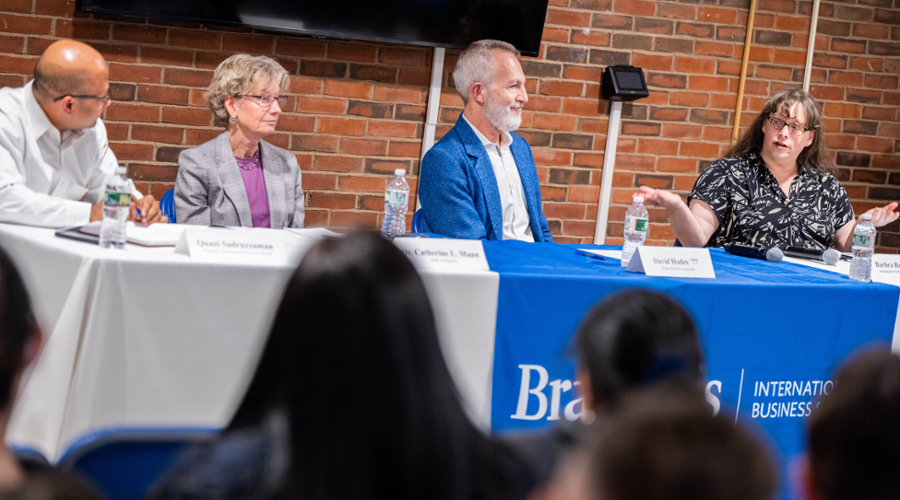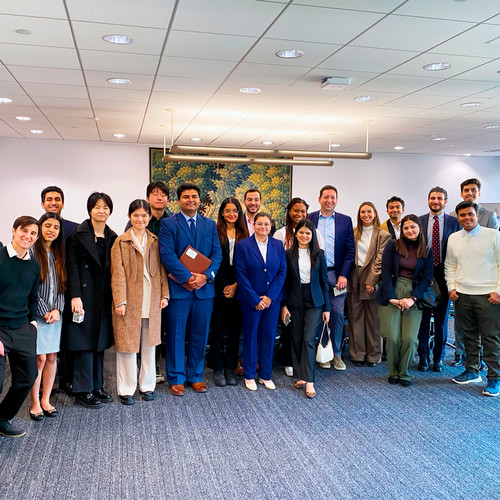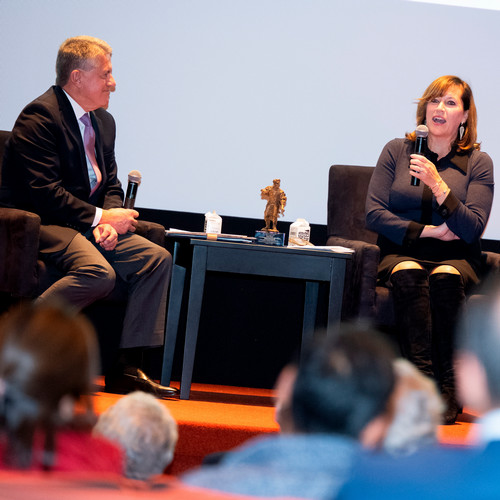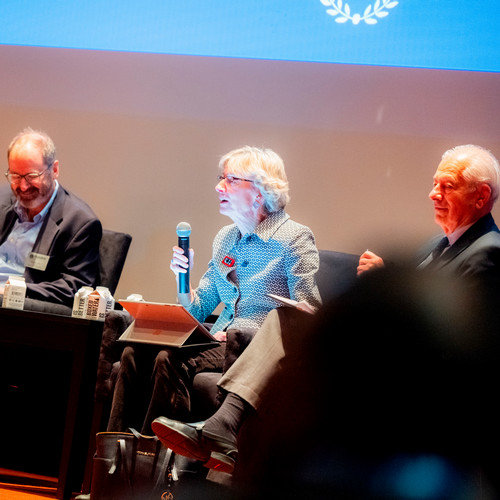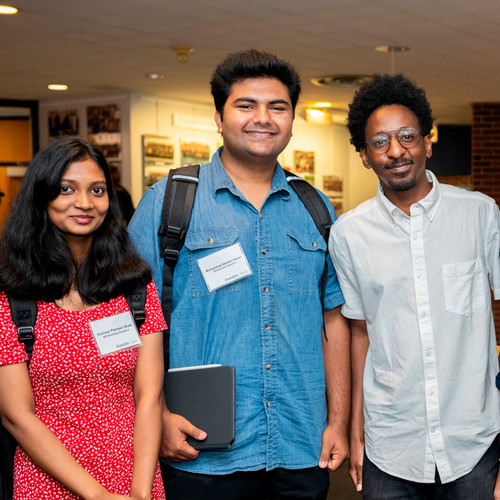David Hodes ’77 wants serious climate action and believes it can be driven by the private sector with government support.
But even when a particular policy or regulation misses the mark, as Hodes believes was the case recently in New York City, the basic rules of market economics can still produce outcomes that are good for the environment.
Hodes is the founder and managing partner of Hodes Weill & Associates, a global real estate advisory boutique, and a member of Brandeis International Business School’s
Board of Advisors. He recently joined economist Catherine Mann of the Bank of England and Barbra BatShalom of the Sustainable Performance Institute for a panel discussion moderated by
Prof. Quazi Sadruzzaman. The event kicked off the International Business School’s fourth-annual
Business of Climate Change program.
Hodes explained how property owners in New York City took matters into their own hands when faced with an ineffective city ordinance designed to boost the use of renewable electricity in buildings. The ordinance hits owners who don’t make the switch to renewables with an additional tax. But Hodes said many owners were forced into noncompliance simply because the local utility, Consolidated Edison, has failed to provide the city with an adequate supply of renewable electricity.
In response, Hodes said a coalition of larger property owners in the city led by a firm called Related Properties made the decision to create their own company, Energy Green, to better meet the demands of the ordinance.
“They say, ‘We would rather build this company than send New York City another $40-50 million a year’ — which is really just a tax because ConEd can’t get their act together and figure out how to create more renewable energy themselves,” said Hodes. “So there is a private sector response.”
Mann nodded in agreement. Hodes’ example illustrates a fundamental theory of economics, she said.
“As the card-carrying economist here, I have to note that if you have something that you don’t like and price it high, you get innovation — you get behavioral change and all of the mechanisms of the free market,” said Mann. “Obviously, what we’re talking about here is changing the relative price of carbon. You can call it a carbon tax. I don't like to use that word because everybody is allergic to it. So you just say change the relative price of carbon and make it more expensive. And an awful lot follows from that.”
BatShalom, who spent her early career as an architect, now leads a consultancy focused on making the building industry more sustainable. When helping new building clients go green, she said the first order of business is to “go in and take out the stupid.”
She recalled long nights scouring blueprints that called for oversized HVAC equipment or triple the amount of concrete required for a project.
“I looked at that and thought, does the client even know what they’re paying for?” said BatShalom. “There’s a lot that’s broken and dysfunctional in how buildings get built.”
The Business of Climate Change is sponsored by the
Asper Center for Global Entrepreneurship.
